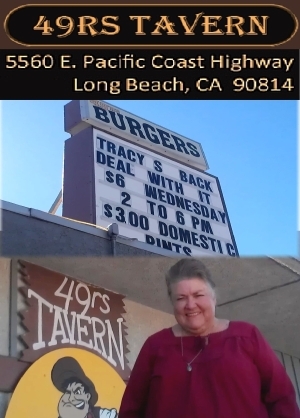 |  |
 |  |
| (May 31, 2013, 10:00 a.m.) -- If past practice determines upcoming events, the CSU administrator chosen by CSU's chancellor to serve as CSULB "interim president" while a search is conducted for a permanent CSULB president may receive a sizable salary increase...and if that process extends to a year, it might increase his ultimate pension.
In a release yesterday (May 30), CSULB announced that Donald J. Para, provost and senior vice president for CSULB academic affairs, was chosen by CSU Chancellor Timothy White to act as CSULB "interim President" (effective July 1) while a "nationwide search" is conducted to find a permanent replacement for CSULB President F. King Alexander who has exited to head the LSU system. A spokesman for the CSU Chancellor's office told LBREPORT.com that for interim campus presidents, CSU's Chancellor recommends a salary and CSU's Board of Trustees reviews and approves the salaries. In 2012, interim appointments were made at CSU campuses in Fullerton, Dominguez Hills and Stanislaus. In all three circumstances, the salary for the interim President was the same as for the outgoing President. CSULB provost Para's current annual salary is $230,004 and his compensation as interim president will be reviewed by the CSU Trustees during open session of the CSU Board of Trustees on July 23, CSU Director of Media Relations & New Media Michael Uhlenkamp told LBREPORT.com. In November 2012, CSULB spokesperson Toni Beron told LBREPORT.com that CSULB President Alexander was slated to receive a CSU salary of $320,329 in FY 12-13, plus housing provided in a CSU Board of Trustees-owned home designated as the CSULB president's residence in lieu of a $60,000 per year housing allowance provided to CSU presidents at campuses where a president's residence isn't provided. If CSULB interim president Para (who has been at CSULB for nearly 25 years) is in the CalPERS system, a CalPERS spokesperson indicated (describing the general CalPERS process) that pensions in such situations are calculated based on one's highest one year salary during a qualifying period. If applicable here, the salary received while acting as "interim president" could increase the pension received on retirement if the search process extends for at least a year. An August 1987 L.A. Times story reported that then-CSULB President Steve Horn was paid an annual salary of "about $110,000." CSULB interim president designee Para is described in a CSULB press release as "chief academic officer of CSULB [where he] provides academic leadership for the university and promotes excellence in all aspects of the university’s academic mission, including undergraduate and graduate education, research and creative activity, international education, service learning, community engagement, service to the profession and faculty and staff development." [CSULB May 30 release text] Prior to his appointments at CSULB, Para served as chair of the Department of Music at Cal State L.A. He was previously a member of the faculty with teaching areas including music theory, musicianship and composition at his alma mater, Western Michigan, where he earned a B.M. in music education and a M.M. in music composition. He earned a Ph.D. in music composition from Michigan State University. In May 2012, CSULB President Alexander said in a televised interview that Californians should be "ashamed" of not spending more on higher education, citing impacts of reduced Sacramento funding on students [not mentioning salaries for CSU administrators including himself]. Interviewed on StraightTalkTV.com, he told host/executive producer Art Levine that state legislators "seem to be more interested in Medicaid and Medicare and more interested in prisons and less interested in the next generation of children in our public schools and students in our higher education institutions." Alexander continued: "There is a significant difference in investing in our children and students and just spending money on an aging population...We're spending less on higher education today, based on the tax wealth of this state, we're spending less than we did in every year except you have to go back to 1965." Alexander added, "Even states like Kentucky, West Virginia, Mississippi, Arkansas...based on the wealth of their capacity, are spending more on their students than we are in California, and people ought to be concerned and even ashamed of that." The vacancy in CSULB's president office was created when Alexander exited to head the Louisiana State University system where he'll receive $600,000 annually plus a $36,000 annual housing allowance plus a $15,000 annual auto allowance plus other benefits. Just days before the Nov. 2012 CA elections, Alexander held a press event on the CSULB campus describing what he (and other LBCC and LBUSD administrators) said would be consequences (mainly for students, he didn't mention administrators) if CA voters failed to approve Proposition 30, which raised CA's state's sales tax and tax rate on high income earners. The passage of Prop 30 made California's top state income tax rate now 12.3% (plus 1% more on taxable income of over $1 million). Louisiana's state income tax rate is 6%. In mid-November 2012, incoming CSU Chancellor White [a UCR Chancellor who succeeded longtime CSU Chancellor Charles Reed] asked the CSU Board of Trustees to reduce the state-funded portion of his incoming salary by 10%, dropping it from $421,500 to $380,000. The Trustees approved White's request. In a statement at the time, then-incoming CSU Chancellor White said: Despite the passage of Proposition 30, there remain grave economic issues to solve in California and the California State University...The success of the measure was the voice of the voters and taxpayers of California to start to reinvest in education. I also recognize that Californians expect me to properly steward these resources. Consequently, as I join the faculty, staff and students who have experienced cuts, salary freezes, and increased fees, I too must do my part. This is the basis of my request to reduce my own compensation to contribute to the rebuilding of this great university. Salaries for high level administrators in the publicly funded CSU and UC systems triggered demonstrations last year with some students demanding pay cuts for administrators and an halt to tuition hikes. Governor Jerry Brown verbally criticized CSU Trustees for approving pay increases supported by then-CSU Chancellor Charles Reed for some newly named CSU Presidents. One state lawmaker, Sen. Leland Yee (D, San Francisco) introduced legislation (opposed by CSU's administration) that would have aggressively slowed CSU executive pay; Yee's legislation failed passage in the Dem majority state legislature. A more modest measure, backed by then Long Beach area state Senator (then state Senate Education Committee chair), now Congressman Alan Lowenthal, was enacted.
Contact us: mail@LBReport.com |
            Hardwood Floor Specialists Call (562) 422-2800 or (714) 836-7050  |
Contact us: mail@LBReport.com